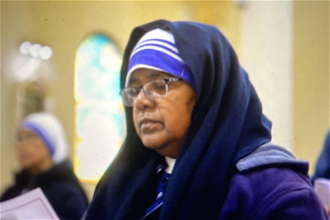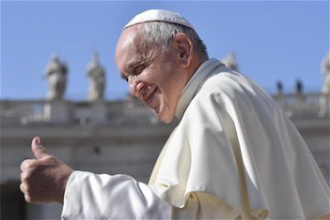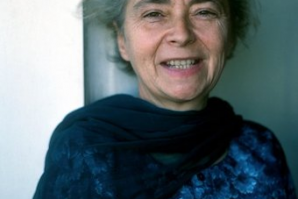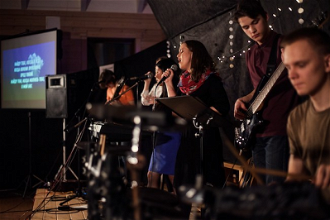Helping the work of Saint Teresa in Calcutta
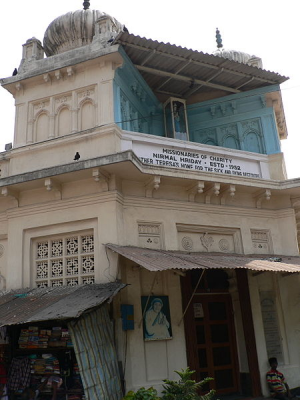
Wiki image
To walk and meet a canonized saint is a wonderful experience and that I did when Saint Teresa came to Manila. Yet many years previous to that, it was my visit to her home and that of the Missionaries of Charity in Calcutta that had a profound effect on me and my life. The anniversary of her canonization will be celebrated on 4th September and her feast day is that of her death anniversary on 5th September. So it is timely to reflect on her work from my actual experience of being part of it.
I was welcomed in Calcutta (now Kolkata) by the community of the Missionary Brothers of Charity, an order of young brothers started by Mother Teresa with the help of Father Ian Traverse Ball, an Australian Jesuit dedicated in helping the work of Saint Teresa and her Sisters in the Calcutta slums. There were about fifty brothers living in the three-story house with a flat roof. I was asked to be chaplain for a few weeks until Father Andrew (the name that Father Ian later on took) returned from leave. It was a very simple, ascetic living. All unnecessary and superfluous things were eliminated. We were all considered brothers and "washers of feet." This is the spirit of Saint Teresa: service to the poor is faith in action.
It was a community of prayer, meditation, reflection and service. We sat on the floor on little cushions in a circle for the celebration of the Eucharist. Bread, baked by the brothers, and a small cup of wine, were offered on a large wooden plate with flower petals and smoking incense sticks. "Do this in memory of me" is what we did. We broke the bread and passed a cup of wine into which we dipped the sacred bread. We called it having a meal of friendship or merienda with Jesus.
I was soon trudging out into the slums with a small band of brothers, making our way through crowds of poor hungry people, many of whom shuffled along from weakness or deformity. While I walked with the Brothers of Charity through this wilderness of human suffering, I felt as Saint Teresa must have felt- frustrated and wanting to be able to change it all and end the social inequality. While striving for that, we had to help those in immediate need.
It was just a few rich owning so much while billions suffered poverty and hunger. It was similar in the Philippines. In a world of vast wealth and riches and mountains of surplus food, why were so many starving and dying in pain and loneliness, rejected and abandoned? Would justice ever come, I wondered.
The next day I joined the brothers on their regular medical mission. We entered a yard where a mobile clinic was parked. We drove off, crossed the big bridge that spanned the Hooghly River, it was chocolate brown from pollution and filth. The mobile clinic stopped in the most dilapidated and awful part of the city. There were rats moving about everywhere, unafraid, pausing to look at us with glint in their beady eyes, and then rummaging on through the piles of garbage.
An animal stable stank like a cesspool and nearby was a discarded slaughterhouse. It was to this festering armpit of indescribable destitution that the lepers came, as it was one of the few places where they could come for treatment far away and banned from society. They appeared from clapboard hovels, sewers, and tunnels. They welcomed the brothers, unashamed of their own rotting putrid flesh festering day by day.
Dirty rags covered the worst of their wounds. They were the stricken, the wretched of the earth, the real untouchables- but not for the brothers. Their cheerful banter with the lepers whom they knew by name showed me how they were friends to these unwanted castaways of humanity. Each had a medical record in the mobile clinic and a history of their treatment. The project was to contact new sufferers and administer drugs that would prevent the leprosy from progressing. Those already badly infected has no chance of recovery but the progress of the disease could be delayed. It was the daily work of the Brothers of Saint Teresa.
The patients were excited and curious by my presence and soon the Brothers were cracking jokes in Urdu with them. I didn't understand but I could feel I was part of the team. I was busy in preparing the medicines that were to be distributed and opening boxes of clean bandages. The patients were lining up to have their old bandages removed, wounds dressed and bandaged again.
After an hour, there was a long line and the brothers encouraged me to help with the dressings. They gave me a pair of surgical gloves and I couldn't refuse an old man who stretched out his bandaged hand to me. To refuse would be unthinkable, as if I rejected him, but I reached out to help him, inexperienced as I was. But I had first aid field training on treating wounds when I was in the Irish army reserve and knew what had to be done.
I cut away the dirty cloth to reveal the decaying fingers. The old man didn't feel anything because the nerve endings were gone so I didn't have to worry about hurting him. I swabbed away the pus and dirt, applied an antiseptic ointment and began to dress and bandage the fingers. Two had already been half-eaten away. It was my first effort and he was so thankful and pleased.
Soon I was wrapping clean bandages on the rotting fingers of another old man. Then I was dabbing another with cotton wool and iodine. We performed simple surgery; there was none else to do it. I proceeded with greater confidence urged on by the leper vigorously nodding his head in approval. I must be doing the right thing, I thought, as I lobbed off another bit of rotten finger of another patient who seemed happy to get the attention and help. I was pleased with my efforts.
We had treated almost fifty by noon. We continued to clean and wash their wounds and wrap them in clean bandages and then closed the mobile clinic and distributed parcels of food and headed for home, leaving behind a happier group of the truly wretched of the earth weakly waving their bandaged limbs in gratitude.
LINK
Preda - www.preda.org/
Missionary Brothers of Charity - www.mcbrothers.org/



